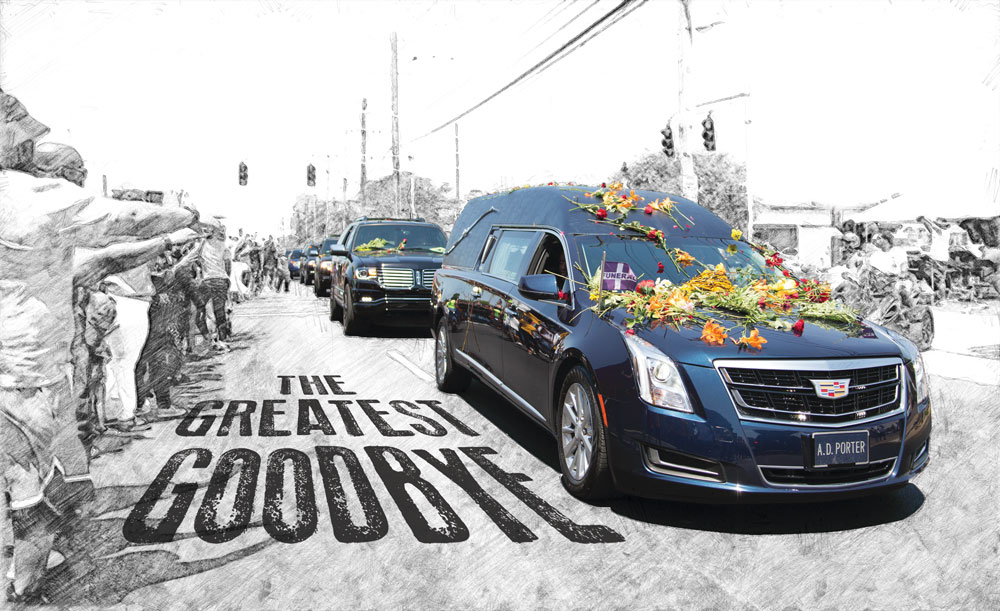She walks to the podium, elegant in a black dress and navy blazer, her black curly hair neatly draping one shoulder, her delicate features and dark eyes resting in a solemn, thoughtful state. Millions are listening and watching the eulogies for Ali. She speaks, her voice a bit shaky. Before I begin, I would like to say I’m truly honored and humbled to be here. Natasha Mundkur’s not nervous. All the 19-year-old University of Louisville student can think about are her too-tight shoes that have left her feet aching and bleeding.
She looks at her speech, then out to the audience, which exists in a dark abyss behind bright lights. So let me tell you a story about a man. She can make out Lonnie Ali and Muhammad’s kids in the front rows. A man who refused to believe that reality was limitation to achieve the impossible. Mundkur first learned of Ali — his boldness and tenacity — in an elementary school civil-rights lesson. A man who once reached up through the pages of a textbook to touch the heart of an eight-year-old girl.
A fly in a milk carton — that’s how Mundkur describes her childhood in rural Virginia. A girl whose reflection of herself mirrored those who could not see past the color of her skin. Kids saw her brown face and Indian heritage as unwelcome, even once throwing rocks at her. At the podium, tiny gasps of air, like soft hiccups, escape with each word. It’s OK to get emotional, she tells herself. It’s true to the moment. But instead of drawing on the pain from that distorted reality, found strength, just as this man did who stood tall in the face of pelting rain and shouted, ‘I am the disturbance in the sea of your complacency and will never stop shaking your waves!’ The crowd roars. She picked up those rocks that were thrown at her and she threw them back. Mundkur covers her mouth, choking back tears. Lonnie Ali mouths, “It’s OK.” For the rest of Mundkur’s life, this will remain the clearest memory of her five minutes onstage.
She continues. Impossible is not a fact. Impossible is an opinion. Impossible is nothing. Mundkur was asked to speak about Ali earlier in the week. She’s well-known at the Ali Center, having participated in youth programs there once her family moved to Louisville from Virginia. When I look into this crowd, I smile. I smile to recognize that he is not really gone. As of last night, she hadn’t even written the speech. Every time she’d try, she’d crumple into sobs. Finally, with the help of a pizza and a close friend who’s skilled in debate, she wrote thoughts down in her personal journal. Within an hour, she had her speech. He lives in you and he lives in me and he lives in every person he has touched in every corner of this world. Impossible is never enough to knock us down because we are Ali.
What a week this has been for Mundkur. She’s done interviews for Indian and British media. In the days to come, she’ll receive 2,000 Facebook friend requests. In the months to come, her speech will be viewed on YouTube more than 130,000 times. So let me tell you about a man. His name is Muhammad Ali. He is the greatest of all time. Ali taught her not to doubt the power of her own voice. He is from Louisville, Kentucky, and he lives in each and every one of us. And his story is far from over. Mundkur wipes tears and pauses for her standing ovation.

| PREVIOUS: Tori Murden McClure, Spalding University | BACK TO INDEX | NEXT: Kevin McKinney, Beekeeper |


